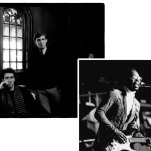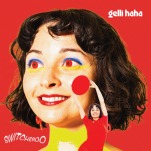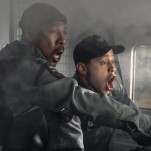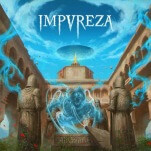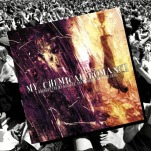Switcheroo Invites You Into the Colorful, Outrageous Gelliverse
Angel Abaya’s first album as Gelli Haha is a punkish post-disco pop record full of surprises and heart.

When I first heard Switcheroo, the debut album for Los Angeles-via-Boise songwriter Angel Abaya under the name Gelli Haha, I knew exactly where I’d want to hear these songs live. There’s a dance club in an industrial corridor on the east side of Cleveland that opened in place of a now-shuttered Croatian dive called crobar; mavericks of the electronic underground increasingly skip the overly glitzed downtown clubs to show off here for the heads. There’s a rusty punk edge that makes the place feel less Instagram, more human. Abaya’s synth-pop could be described similarly—as much as her bright blue eyeshadow and haunted kids’ TV aesthetic could appear gimmicky, nothing on Switcheroo feels overproduced. Abaya’s disorienting approach to electronic music has both edge and softness—call it Magdalena Bay for people who grew up on Mark Mothersbaugh. It’s a promising debut.
Switcheroo is a dance party of primary colors, Electrix effects, and strange samples (did you hear the bear attack on the back half of “Dynamite”?) that emerged through Abaya’s careful songwriting and a love of twisted disco shared with co-producer Sean Guerin of De Lux. Together, they warp dance and synth-pop with a post-punk gloom that underscores Abaya’s aestheticized and verbalized absurdity. It makes a song like “Spit” sound deadly serious, sometimes approaching the intensity of Boy Harsher, but once you dive into the lyrics, you realize it’s a sequence of S-words uttered seemingly at random (repeating the word “Surrender,” though, is ominous). “Normalize” has a similar entropy, as Abaya lists rhymes in dulcet tones: “Anesthesia / Euthanasia / Homophobia / Hemophilia / Diphtheria / Arrhythmia / Cornucopia / Pedophilia.” It sounds like clanging, the mental looping phenomenon explored on rapper Emily Allan’s album of the same name. Clanging is un-free association, a space where the poetic resonance of rhyme grows from a funny coincidence into gospel. Even to an observer firmly tethered to the ground, clanging can produce feelings of obvious disorientation but a nagging sense of interrelatedness.
-

-

-

-

-

-

-

-

-

-

-

-

-

-

-

-

-

-

-

-

-

-

-

-

-

-

-

-

-

-

-

-

-

-

-

-

-

-

-

-




